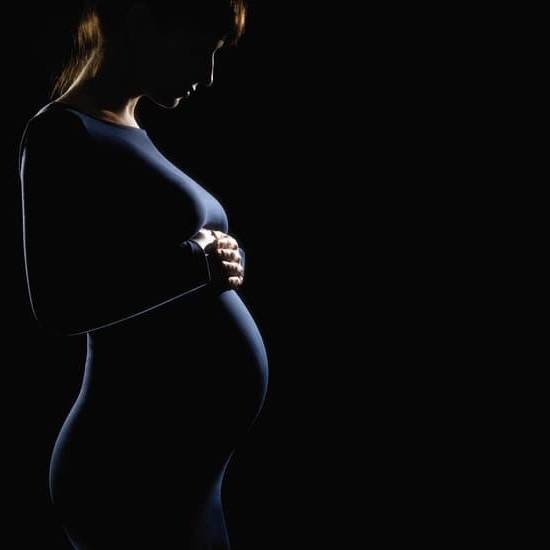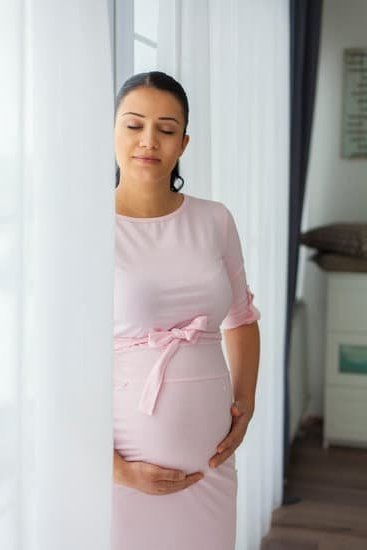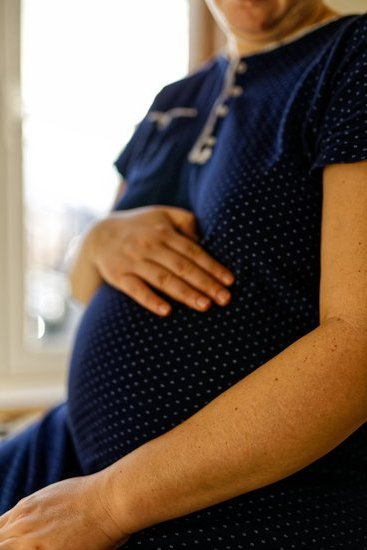When does your belly button pop out in pregnancy? The changes in a woman’s body during pregnancy are truly remarkable, and one of the most noticeable developments is the belly button “popping” out. Understanding this process and knowing what to expect can help pregnant women feel more prepared and at ease as their bodies undergo these changes.
During pregnancy, the belly button goes through significant changes as the uterus expands to accommodate the growing baby. This transformation is influenced by various factors, such as genetics, the position of the baby, and the individual’s body shape.
As we delve into the anatomy of the belly button and explore how it changes throughout each trimester of pregnancy, we’ll also discuss common myths and misconceptions surrounding this phenomenon. Additionally, we’ll address what it feels like when your belly button pops out, providing tips for managing any discomfort or pain that may arise. Lastly, we will emphasize the importance of embracing these changes with self-care and body positivity during pregnancy.
Trimester by Trimester
During pregnancy, a woman’s body undergoes numerous changes, including the transformation of their belly button. The process of the belly button popping out, also known as “navel protrusion,” is a common occurrence for many pregnant individuals. Understanding the progression of this change throughout each trimester can help expectant mothers prepare for and embrace these bodily transformations.
1. First Trimester: During the first trimester, many women may not notice any significant changes in their belly button. This is because the uterus is still positioned within the pelvic cavity and has not yet grown large enough to cause outward pressure on the abdominal wall.
2. Second Trimester: As the pregnancy progresses into the second trimester, some women may begin to notice subtle changes in their belly button. It may start to flatten or appear more stretched due to the growing uterus putting pressure on the abdominal muscles and skin.
3. Third Trimester: By the third trimester, it is common for the belly button to become noticeably pushed out or “popped.” This occurs as a result of the expanding uterus reaching higher into the abdomen and putting increased pressure on surrounding tissues. For some women, this change may be gradual, while others may experience a sudden protrusion of their belly button.
It’s important to note that every pregnancy is unique, and not all women will experience their belly buttons popping out at the same time or to the same extent. Factors such as genetics, pre-pregnancy abdominal shape, and the position of the baby can influence when this change occurs.
Regardless of when your belly button pops out during pregnancy, it’s essential to remember that these physical transformations are a natural part of carrying a child. Embracing these changes and practicing self-care can help expectant mothers navigate this journey with confidence and positivity.
Factors That Influence When the Belly Button Pops Out in Pregnancy
During pregnancy, the body goes through numerous changes, and one of the most noticeable ones for many women is the transformation of their belly button. The timing of when your belly button pops out during pregnancy can vary from woman to woman and can be influenced by several factors. Understanding these factors can give you a better idea of what to expect as your pregnancy progresses.
One significant factor that influences when your belly button pops out in pregnancy is the position of the baby. As your baby grows, they may put pressure on the inside of your abdomen, causing it to push forward and potentially causing your belly button to protrude outward. The position of the placenta can also play a role in this process.
Another influential factor is your individual body type and size. Women with a deeper belly button or a narrower abdominal area may find that their belly button pops out sooner than those with a shallower belly button or a wider abdomen. Additionally, women who are carrying multiples or have had previous pregnancies may notice their belly button popping out earlier in their pregnancy.
It’s important to remember that while these factors can influence when your belly button pops out during pregnancy, there is no set timeline for this phenomenon. Some women may experience it early in their second trimester, while others may not see any changes until late in their third trimester. Each woman’s experience is unique, so it’s essential to approach this aspect of pregnancy with patience and understanding.
| Factors Influencing When Belly Button Pops Out | Details |
|---|---|
| Position of the Baby | The pressure from the growing baby inside the abdomen can cause the belly button to protrude outward. |
| Body Type and Size | Women with different body types may experience their belly buttons popping out at different times. |
| Pregnancy History | Having multiple pregnancies or carrying multiples can also affect when the belly button pops out during pregnancy. |
Common Myths and Misconceptions About the Belly Button Popping Out
During pregnancy, many women experience the phenomenon of their belly button “popping out,” also known as umbilical hernia. Contrary to common belief, this occurrence is not actually the belly button itself popping out, but rather it is a result of the growing uterus pushing against the abdomen, which causes the belly button to protrude. This can be due to the stretching and thinning of the abdominal wall as the uterus expands to accommodate the growing baby.
One common myth about the belly button popping out in pregnancy is that it indicates the gender of the baby. However, there is no scientific evidence to support this claim. Another misconception is that a popped-out belly button can cause harm to the baby or mother. In reality, while it may cause discomfort or mild pain for some women, it is not harmful to either.
It should be noted that every woman’s body is different, and therefore, there is no specific timeframe for when the belly button pops out during pregnancy. For some women, it may happen early on in their pregnancy, while for others it may occur later or not at all.
The timing of this occurrence can be influenced by factors such as genetics, weight gain, and whether or not a woman has had previous pregnancies. Ultimately, when a woman’s belly button pops out during pregnancy varies from person to person.
| Myth/ Misconception | Rebuttal |
|---|---|
| Belly button popping out indicates baby’s gender | No scientific evidence supports this claim |
| Popped-out belly button harms baby or mother | While it may cause discomfort for some women, it is harmless |
| Predictable timeframe for when belly button pops out | Varies from person to person and can be influenced by various factors |
What Does It Feel Like When Your Belly Button Pops Out in Pregnancy?
During pregnancy, many women experience a phenomenon known as “belly button popping out,” also called an “outie” belly button. This occurs when the growing uterus pushes against the abdominal wall, causing the belly button to protrude outward. For some women, this can be a surprising and even uncomfortable change to their body during pregnancy.
Physical Sensations
When the belly button pops out in pregnancy, women may feel a variety of physical sensations. Some describe it as a stretching or pulling feeling around the navel area, while others may feel a mild or dull pain. The sensation can vary from woman to woman, with some experiencing minimal discomfort and others finding it quite bothersome.
Changes in Appearance
Aside from physical sensations, the visual change of the belly button popping out can also come as a surprise to many pregnant women. What once was an “innie” belly button may now protrude outward, altering the appearance of the abdomen. This change can have an emotional impact on some women, especially if they are already feeling self-conscious about their changing body during pregnancy.
Emotional Response
The experience of your belly button popping out in pregnancy can elicit various emotional responses. Some women may feel fascinated by this unique aspect of their pregnancy journey, while others may struggle with accepting this physical change. It’s important for expectant mothers to acknowledge and process these emotions as part of embracing their evolving bodies during pregnancy.
Tips for Managing Discomfort or Pain When Your Belly Button Pops Out
During pregnancy, many women experience discomfort or pain when their belly button pops out. This can be due to the stretching of the skin and muscles around the abdomen as the baby grows. It is important to find ways to manage this discomfort in order to have a more comfortable pregnancy experience.
Here are some tips for managing discomfort or pain when your belly button pops out in pregnancy:
- Use a supportive belly band: A belly band can provide gentle support for the growing belly, which can help relieve pressure on the abdomen and alleviate discomfort around the belly button area.
- Apply soothing ointment: Using a soothing ointment or cream on the stretched skin around the belly button can help reduce itching and discomfort. Look for products specifically designed for use during pregnancy.
- Practice gentle abdominal exercises: Engaging in gentle, pregnancy-safe abdominal exercises, such as pelvic tilts and modified planks, can help strengthen the muscles around the abdomen, which may reduce discomfort when your belly button pops out.
It’s important to consult with your healthcare provider before trying any new methods for managing discomfort or pain during pregnancy. They can provide personalized advice based on your individual needs and medical history. By taking proactive steps to manage discomfort when your belly button pops out, you can promote a more positive and comfortable pregnancy experience.
When to Seek Medical Advice for Belly Button Popping Out During Pregnancy
During pregnancy, many women may experience their belly buttons popping out due to the expanding uterus putting pressure on the abdomen. While this is a common and normal occurrence, there are instances when seeking medical advice is necessary to ensure the health and well-being of both the mother and baby.
Unusual Pain or Discomfort
It is essential to seek medical advice if the popping out of the belly button is accompanied by severe pain or discomfort. While some level of discomfort is normal as the belly button stretches, any sharp or persistent pain should be addressed by a healthcare provider to rule out any complications.
Bleeding or Discharge
If there is any bleeding or discharge from the belly button along with the protrusion, it could indicate an infection or other issues that need medical attention. Any signs of infection should not be ignored, and it’s important to consult with a healthcare professional for proper evaluation and treatment.
Changes in Belly Button Appearance
If there are sudden changes in the appearance of the belly button, such as redness, swelling, or a noticeable change in shape, it’s advisable to seek medical advice. These changes could signal an underlying issue that needs prompt attention.
Overall, while belly button popping out during pregnancy is usually harmless, it’s important to be aware of any unusual symptoms that may accompany it and not hesitate to contact a healthcare provider for peace of mind and appropriate care.
Embracing the Changes
As the journey of pregnancy progresses, it is important for expectant mothers to embrace the changes that their body undergoes. The popping out of the belly button is just one of the many physical transformations that occur during this time. It is a natural and normal part of pregnancy, signaling the growth and expansion of the uterus as the baby develops and grows inside the womb.
For many women, their belly button may pop out around the second or third trimester, but every pregnancy is different, and individual experiences can vary. Factors such as genetics, the position of the baby in the womb, and the mother’s body type can influence when this occurs. Some women may notice their belly button protruding earlier in their pregnancy, while others may not experience it until later on.
During this time, it is crucial for pregnant individuals to practice self-care and body positivity. Embracing these changes by nurturing both their physical and emotional well-being can help alleviate any discomfort or pain associated with their belly button popping out. From gentle stretches to wearing comfortable maternity clothing, there are various ways to manage any discomfort that may arise.
In conclusion, as your body goes through these remarkable changes during pregnancy, it is essential to prioritize self-care and embrace the beauty of this transformative journey. Remember that each person’s experience with their belly button popping out will be unique, so it’s important to listen to your body and seek medical advice if you have any concerns.
By practicing self-care and maintaining a positive mindset, you can navigate this physical transformation with grace and appreciation for the incredible work your body is doing in nurturing new life.
Frequently Asked Questions
What Week Does Belly Button Pop During Pregnancy?
The belly button typically pops out during the second or third trimester of pregnancy. This is due to the growing uterus putting pressure on the abdomen, causing the belly button to protrude.
Is It Okay if Your Belly Button Doesn T Pop Out During Pregnancy?
It is perfectly okay if your belly button doesn’t pop out during pregnancy. Not all women experience this change, and it is not a cause for concern. Each woman’s body responds differently to pregnancy.
Does It Hurt When Your Belly Button Pops Out During Pregnancy?
For most women, the popping out of the belly button during pregnancy does not hurt. It may feel uncomfortable or strange, but it is generally not a painful experience. However, if there is any pain or discomfort, it is important to consult with a healthcare provider for reassurance and advice.

Welcome to my fertility blog. This is a space where I will be sharing my experiences as I navigate through the world of fertility treatments, as well as provide information and resources about fertility and pregnancy.





